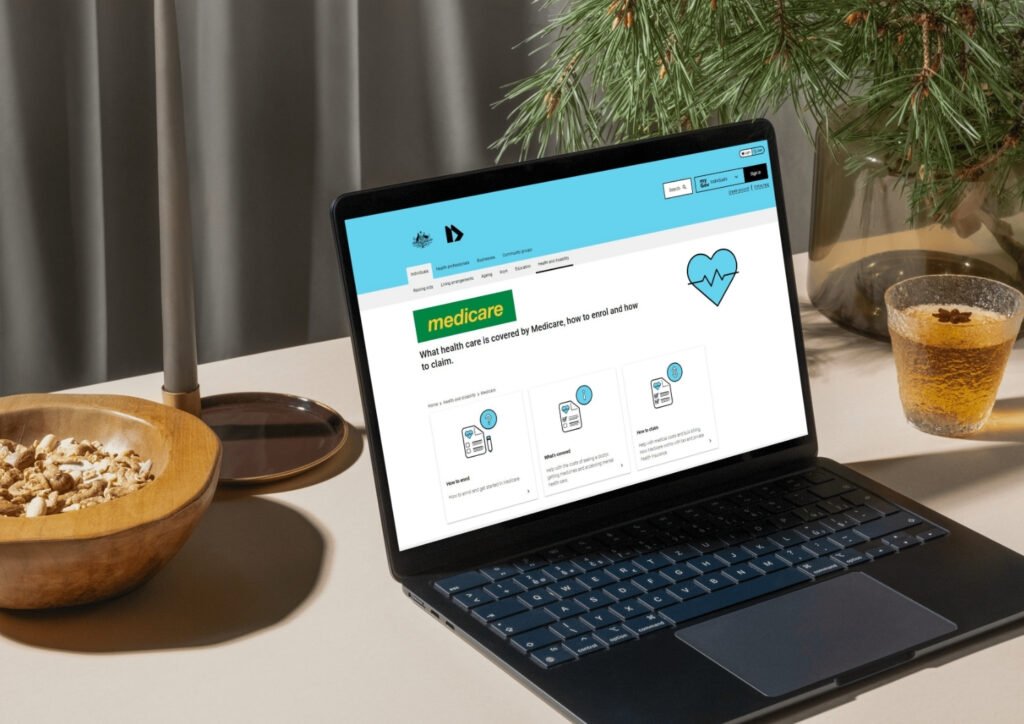Medicare Eligibility for Australian Seniors

Last Updated on June 30, 2025 by George
Are you approaching retirement and feeling overwhelmed by Medicare’s eligibility requirements? You’re not alone. For many Australian seniors, understanding Medicare eligibility can seem like navigating a complex maze of regulations and paperwork.
This comprehensive guide demystifies the process, offering clear pathways to ensure you receive the healthcare coverage you deserve.
Medicare forms the cornerstone of Australia’s healthcare system, designed to provide accessible and affordable medical services to all Australians. For seniors, particularly, knowing how to maximize your Medicare benefits can significantly impact your quality of life and financial well-being during retirement years.
This guide walks you through essential eligibility criteria, application processes, and available benefits tailored specifically for seniors. You’ll discover how to determine your eligibility, what documents you’ll need, how to enroll effectively, and what Medicare covers (and doesn’t cover). We’ve also included information about additional supports like the Pharmaceutical Benefits Scheme and Medicare Safety Net that can help manage out-of-pocket expenses.
Armed with this knowledge, you’ll be empowered to make informed healthcare decisions and confidently access the medical services you need for a healthy, fulfilling retirement.
Australian Seniors’ Guide to Medicare Eligibility: Everything You Need to Know

Medicare Eligibility Requirements
To quickly determine your Medicare eligibility in Australia, start by checking your age and residency status. According to Services Australia, you are generally eligible for Medicare if you are an Australian or New Zealand citizen, hold a permanent visa, or have applied for a permanent visa and meet specific residency criteria.
Ensure you have proof of identity and residency, such as a passport or birth certificate, which will be needed during your application process. Additionally, if you’re a senior, verifying if you qualify for any concessions or additional benefits might require you to provide evidence of your age, typically through government-issued documentation.
What Makes You Eligible?
Australian citizens and permanent residents are automatically eligible for Medicare coverage. This universal healthcare system ensures that seniors have access to essential medical services regardless of their financial situation or pre-existing conditions.
If you’re visiting from a country that has a Reciprocal Health Care Agreement with Australia, you might also be eligible for limited Medicare benefits during your stay. Countries with these agreements include New Zealand, the United Kingdom, and several European nations.
Next, review your specific healthcare needs and cross-reference them with what Medicare covers. Medicare offers a range of services, including free or subsidized treatment by health professionals and access to hospital services. This step ensures that you are not only eligible but also fully aware of the health care services to which you are entitled.
For a more detailed list of eligibility requirements and the specific documents needed, check out the Medicare (Australia) and the Services Australia enrolment guide.

How to Enrol (or Re-Enrol) in Medicare
To navigate the Medicare enrollment process in Australia effectively, begin by gathering all necessary documentation, such as proof of identity, including a birth certificate or passport, and evidence of residency. Once you have the required documents, you can either apply online through the myGov platform or in person at a Medicare service centre.
According to Services Australia, the online application process is streamlined, allowing you to submit your information and track your progress efficiently. Ensure that your personal details are accurate on the application to avoid any potential delays.
Here’s an expanded look at the process:
- Determine Your Eligibility
- Before enrolling, confirm that you meet one of the eligibility criteria outlined above. For most Australian citizens and permanent residents, enrolment happens automatically when you register your details with the government.
- Gather the Necessary Documents
- You’ll need to provide proof of identity (such as an Australian passport or birth certificate) and proof of residency (like a utility bill, lease agreement, or employment evidence). If you’re re-enrolling after being overseas, you might need additional documents to show your return.
- Enrol Online via myGov
- The quickest way to enrol is through your myGov account, where you can link your Medicare details and complete the application process online. If you’re not comfortable online, you can complete a Medicare enrolment form and submit it by mail or in person at a Medicare service centre.
- Receive Your Medicare Card
- Once your application is processed, you will receive a Medicare card. You can also download a digital version via the Express Plus Medicare app, which is especially handy when you’re on the go.
After submitting your application, familiarize yourself with the types of Medicare cards available. Seniors are typically issued a green Medicare card, which is the most common card and covers essential medical services. If you have specific health needs or require additional support, explore the range of additional programs and supplements available, such as the Pharmaceutical Benefits Scheme.
This scheme provides significant savings on prescription medicines, as outlined by the Department of Health and Aged Care. By understanding your options and completing the enrollment steps methodically, you ensure you maximize your Medicare benefits and access the medical care you are entitled to.
What Medicare Covers for Seniors
As you explore the benefits offered by Medicare, it’s crucial to understand the types of services covered and how they can assist you in managing your healthcare needs effectively. Medicare provides a wide range of services, including consultations with doctors and specialists, hospital care, and medically necessary procedures, as outlined by Services Australia.
Take advantage of the Pharmaceutical Benefits Scheme (PBS), which subsidizes the cost of many prescription medications. Knowing what is covered under the PBS can save you significant out-of-pocket expenses. Additionally, preventive services such as screenings and immunizations are often covered, ensuring that you maintain your health proactively.
Another benefit you should consider is the access to bulk billing services, which can greatly reduce your direct healthcare costs. Many healthcare providers in Australia offer bulk billing, meaning they bill Medicare directly, allowing you to avoid upfront payments for many services. Be sure to ask your healthcare provider if they offer bulk billing to make the most of this benefit.
Additionally, if you have additional healthcare needs, consider exploring the Chronic Disease Management services, which help cover allied health professional visits. By familiarizing yourself with these available benefits and how to access them, you can ensure that you fully leverage the support Medicare provides to Australian seniors.

What isn’t covered?
Medicare does not usually cover costs for dental care, ambulance services, glasses or contact lenses, most allied health services (such as physiotherapy), and elective cosmetic procedures. Many of these services can be accessed through private health insurance or other state-based programs. For a comprehensive rundown, refer to Healthdirect’s What is Medicare? and the Better Health Channel.
Additional Benefits and Support
Beyond standard coverage, Medicare offers several additional supports tailored to help manage your out-of-pocket expenses:
- Medicare Safety Net:
If you incur high medical costs over the year, the Medicare Safety Net kicks in once you reach a specified threshold. This system increases the Medicare rebate for certain services, reducing further financial strain. Families can combine their out-of-pocket expenses to reach the threshold more quickly, ensuring more comprehensive coverage when it’s needed most. - Concessions and Additional Support:
Seniors who hold a Health Care Card or other concession cards might be eligible for further discounts on medical fees and medications. These concessions help ensure that those on fixed incomes are not burdened by high health care costs. - Access to Allied Services:
While Medicare covers the basics, many allied health services (like physiotherapy or dietetics) may be partially subsidised under specific programs, particularly if they’re related to chronic conditions or part of a broader treatment plan.
Learn About Costs and Coverage Limits
When navigating Medicare, it’s essential for you to diligently assess both the costs involved and the coverage limits that apply to your healthcare services. Start by examining the Medicare Safety Net, which is designed to provide extra financial assistance for out-of-pocket expenses for out-of-hospital services.
Once you reach a certain threshold, the Medicare Safety Net can significantly reduce the costs of additional medical services, thus easing your financial burden. Services Australia offers detailed information on the current thresholds and how you can track your progress towards reaching them.
You also need to understand the concept of the Medicare Levy and the Medicare Levy Surcharge, which can impact your tax obligations. The standard Medicare Levy is typically 2% of your taxable income, while the surcharge applies to high-income earners without adequate private health insurance, adding an additional 1-1.5% to your tax bill.
Familiarize yourself with these levies as set by the Australian Taxation Office to ensure compliance and avoid unexpected charges. Moreover, you should consider private health insurance options to cover services not included in Medicare, as these can provide additional financial protection against unforeseen healthcare costs.
Final Thoughts
To effectively utilize the assistance programs available for seniors, you should begin by exploring the various government and community services designed to support your healthcare and lifestyle needs. Start with the Commonwealth Home Support Programme (CHSP), which provides entry-level support for seniors who need help to live independently at home.
Services can include domestic assistance, meals, and respite care. For more comprehensive care, consider applying for a Home Care Package, which offers a tailored approach aligned to your specific needs and may cover a broader range of services such as home modifications or transportation.
Additionally, research and take advantage of the Seniors Card program available in your state or territory, which offers discounts and concessions on various goods and services, including health services, transportation, and utilities. Each state has specific eligibility criteria and benefits, so it’s important to review these details carefully.
The Australian Government’s My Aged Care website is a valuable resource for understanding and accessing these programs. It offers guidance on eligibility criteria, application processes, and service selection, ensuring you can make informed choices to support your well-being. Remember, staying informed is your best defence against unexpected costs. Check the latest updates directly from Services Australia or Healthdirect to ensure you have the most current information.
Here’s to a healthier, more secure future—because a little extra knowledge now can make all the difference later on!
Frequently Asked Questions About Medicare Eligibility in Australia
- What age do I need to be to qualify for Medicare in Australia?
- There is no specific age requirement for Medicare eligibility in Australia. Eligibility is based primarily on citizenship, residency status, and visa type rather than age. However, seniors (those aged 65 and over) may qualify for additional benefits and concessions through Medicare and related programs.
- I’m a permanent resident but not a citizen. Am I eligible for Medicare?
- Yes, permanent residents are eligible for Medicare. You need to provide proof of your permanent visa status during the application process. If you’ve applied for a permanent visa but it hasn’t been granted yet, you might still be eligible depending on your circumstances.
- What documents do I need to enrol in Medicare?
- You’ll need proof of identity (such as a passport or birth certificate), proof of residency (like utility bills or a lease agreement), and if applicable, evidence of your visa status. Seniors may also need to provide age verification for certain concessions. It’s best to bring multiple forms of identification when applying.
- How long does it take to receive a Medicare card after applying?
- Once your application is processed and approved, you should receive your Medicare card within 3-4 weeks. However, you’ll be provided with a Medicare number immediately upon successful application, which you can use for healthcare services while waiting for your physical card.
- Can I access Medicare benefits while traveling within Australia?
- Yes, your Medicare coverage is valid throughout Australia. If you’re traveling domestically, you can visit any Medicare-participating healthcare provider and receive the same benefits you would at home. Consider downloading the Express Plus Medicare app to have your digital Medicare card handy while traveling.
- What happens to my Medicare coverage if I travel overseas?
- Medicare generally doesn’t cover medical costs incurred outside Australia. Before traveling internationally, consider purchasing travel insurance that includes health coverage. However, Australia has Reciprocal Health Care Agreements with several countries that may provide limited healthcare coverage for Australian travelers.
- If I’m on a pension, do I get additional Medicare benefits?
- Pensioners and concession card holders often receive additional healthcare benefits, including lower prescription costs through the PBS, higher Medicare rebates, and potential access to bulk billing services. Make sure your concession card details are linked to your Medicare record to receive these benefits automatically.
REFERENCES
- Services Australia. (2025). Enrolling in Medicare | myGov.
- Australian Government Department of Health and Aged Care. (2025). Medicare.
- Services Australia. (2024). Have your own Medicare card and number if you’re 15 or older and enrolled in Medicare.
- Services Australia. (2025). Enrolling in Medicare if you’re an Australian permanent resident.
- Australian Government Department of Health and Aged Care. (2024). Medicare safety nets. Retrieved from https://www.health.gov.au/topics/medicare/about/safety-nets
- Services Australia. (2024). Extended Medicare Safety Net.
- Services Australia. (2024). Reciprocal Health Care Agreements.
- Wikipedia. (2025). Medicare (Australia).





